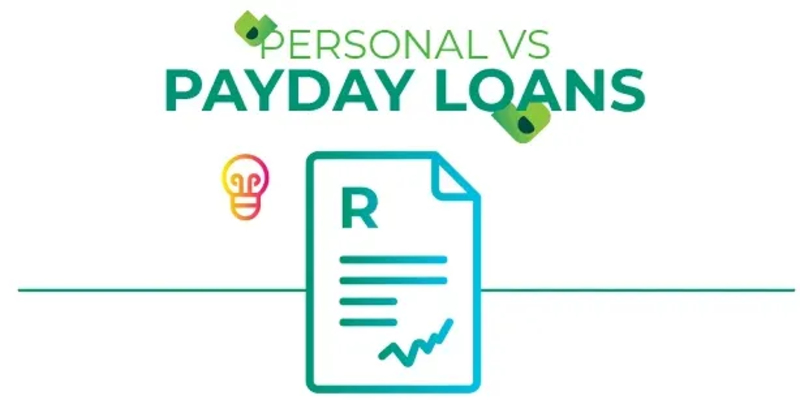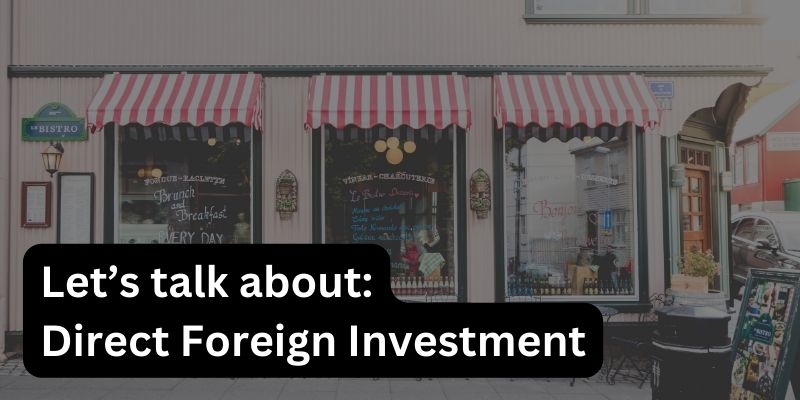The world is becoming more connected than ever, and businesses constantly seek new opportunities in other parts of the world. And do you know how companies expand into other countries? Thats where Foreign Direct Investment (FDI) comes in. In this article, well dive deep into Foreign Direct Investment (FDI), a significant driver of international trade & economic growth. Well explore the definition of FDI, its various types, and the benefits and considerations for both investing and receiving countries.
What Is Foreign Direct Investment (FDI)?

Its basically when a company in one country sets up a shop in another. Thats the essence of Foreign Direct Investment (FDI)! Its when a company from one country puts its money and resources into a business in a different country, with the goal of having a say in how things are run. This investment is not just for monetary benefits; its about establishing a long-term presence and control. FDI is a major player in todays globalized world, fostering economic growth, creating jobs, and spreading new technologies across borders.
What Are The Motives Behind Foreign Direct Investment (FDI)?
Unlike buying stocks or bonds (portfolio investment), FDI is about gaining a deeper foothold. Companies engage in FDI to establish lasting control over a foreign business venture. This allows them to influence operations and decisions directly.
Its important to distinguish FDI from Mergers & Acquisitions (M&A). While both involve foreign investment, FDI focuses on creating a new business entity (subsidiary) in a foreign country. M&A, on the other hand, might involve acquiring a controlling interest in an already existing foreign company.
So, why do companies go through the effort of FDI? The reasons are diverse:
- Reaching New Markets: FDI allows companies to tap into new customer bases and expand their market reach.
- Securing Resources: Some countries offer valuable resources like raw materials or labor, motivating FDI to secure a steady supply.
- Cost Reduction: Lower production costs for labor or materials in another country can be a major motive for FDI.
- Government Incentives: Many countries offer tax breaks or other incentives to attract foreign investment.
How Does Foreign Direct Investment Work?
Turning an FDI idea into reality follows a key process.
First, an investor identifies an attractive opportunity in a foreign country. This could be a new market, access to resources, or lower production costs.
Next comes establishing a presence in the host country. This often involves setting up a new business entity, called a subsidiary, which operates under the investors control.
Finally, the investor commits resources like technology, finances, or expertise to get the subsidiary up and running. This investment creates a lasting footprint in the foreign country, fostering a deeper economic connection.
What Are The Different Types of Foreign Direct Investment (FDI)?

The world of FDI isnt one-size-fits-all. Investors can choose from various approaches depending on their goals and resources. Heres a breakdown of the most common types:
Greenfield Investments
Its like building a business from scratch in a new country. Thats the essence of a greenfield investment! A company establishes a brand new subsidiary in a foreign country, like a factory or a retail store. This approach offers complete control over operations and branding, allowing the investor to tailor the business to a specific market.
However, greenfield investments can involve higher initial costs, such as land acquisition, construction, and navigating unfamiliar regulations.
Mergers & Acquisitions (M&A)
Not all FDI involves starting fresh. Mergers & Acquisitions (M&A) can also be a form of FDI if a company acquires a controlling interest in an existing foreign company. This approach offers a quicker way to enter a new market and leverage the existing infrastructure and customer base of the acquired company.
However, integrating two different company cultures and processes can be challenging, requiring careful planning and management.
Joint Ventures (JVs)
Sometimes, collaboration is key! A joint venture (JV) is a partnership between a foreign investor and a local company in the host country. This approach allows the foreign investor to benefit from the local companys expertise, knowledge of the market, and established relationships.
JVs can be particularly advantageous when dealing with complex regulations and cultural nuances in the host country.
What Are The Benefits of Foreign Direct Investment (FDI)?
Foreign direct investment (FDI) is a two-way street, offering advantages for both the investing countries and the host countries. Lets explore the positive impacts.
Benefits of Foreign Direct Investment for Investing Countries
For the investing countries, FDI can be a major driver of economic growth. Heres how:
- Access to New Markets: FDI allows companies to expand their reach and tap into new customer bases in foreign markets. This can lead to increased sales and profits for the investing companies.
- Increased Tax Revenue: When companies invest abroad, they generate profits that are subject to taxation by the host country. This can be a significant source of tax revenue for the host country.
- Foreign Exchange Earnings: Additionally, FDI can lead to increased foreign exchange earnings for the investing country, as companies bring back their profits to the origin country.
Benefits of Foreign Direct Investment for Host Countries
Host countries also reap a range of benefits from FDI:
- Job Creation: When companies establish subsidiaries abroad, they create new jobs in the host country. This can help reduce unemployment and improve the overall standard of living.
- Access to New Technologies and Skills: FDI can bring new technologies and skills to the host country. This can help to improve the productivity and competitiveness of businesses in the host country.
- Infrastructure Development: In some cases, foreign investors may invest in infrastructure projects in the host country, such as roads, bridges, and ports. This can improve the overall business environment and attract further investment.
- Increased Exports: FDI can lead to increased exports from the host country. This is because foreign investors may establish export-oriented businesses in the host country.
What Are The Disadvantages of Foreign Direct Investment (FDI)?
Its important to acknowledge that FDI has potential drawbacks for host countries. These include job displacement in certain sectors, environmental concerns associated with some foreign investments, and an over-reliance on foreign investment for economic growth. Effective regulations are crucial to ensure FDI benefits the local economy in the long run.
Conclusion
In conclusion, Foreign Direct Investment (FDI) is a complex but crucial aspect of the global economy. It can be a powerful tool for promoting economic growth, job creation, and technology transfer. However, its important to be aware of both the benefits and drawbacks of FDI and to ensure that it is managed in a way that benefits all stakeholders.







